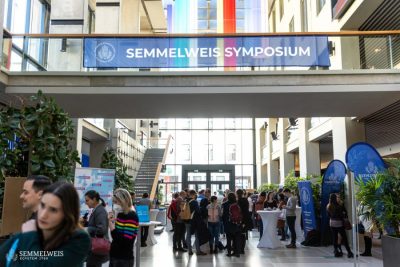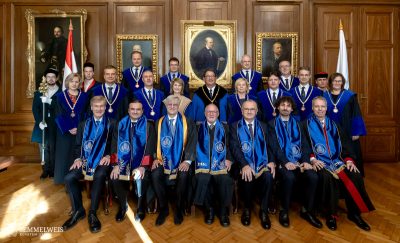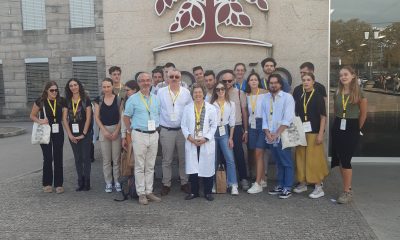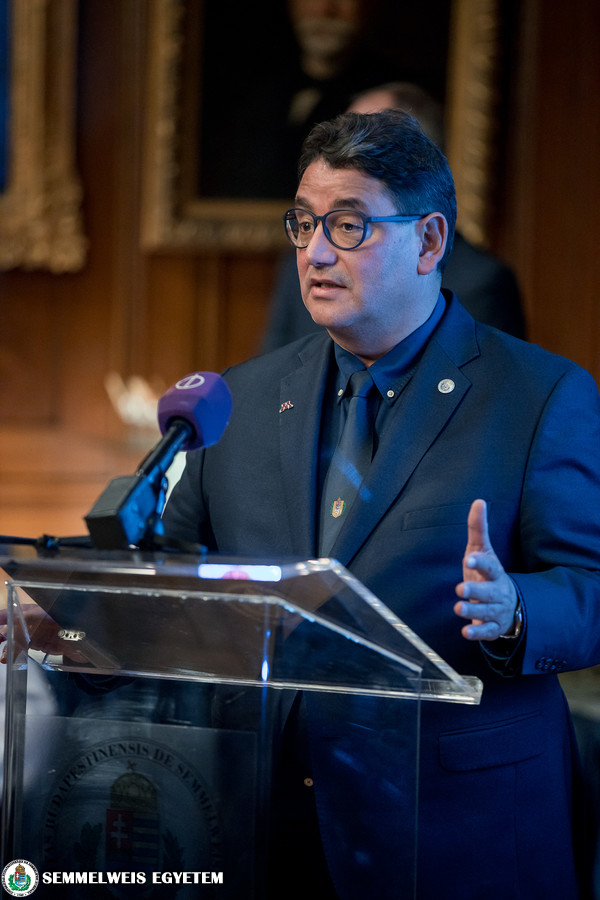 “A medical and health sciences university cannot set a smaller goal than creating something lasting in the area of innovation, and making it an important part of its everyday operations,” emphasized rector Dr. Béla Merkely at the meeting. Innovation at the university – which will also be supported by the planned Health Sciences-Biotechnology Science Park – does not only help advancing in international rankings, but also represents an important source for solving everyday questions in clinical care. Under the Thematic Area Excellence Program announced this year by the Ministry for Innovation and Technology (ITM), Semmelweis University’s application in the area of AI has been awarded HUF 1.7 billion in support. “In the 11 translational sub-projects we will approach the addressed problems with the tools of AI,” the rector noted.
“A medical and health sciences university cannot set a smaller goal than creating something lasting in the area of innovation, and making it an important part of its everyday operations,” emphasized rector Dr. Béla Merkely at the meeting. Innovation at the university – which will also be supported by the planned Health Sciences-Biotechnology Science Park – does not only help advancing in international rankings, but also represents an important source for solving everyday questions in clinical care. Under the Thematic Area Excellence Program announced this year by the Ministry for Innovation and Technology (ITM), Semmelweis University’s application in the area of AI has been awarded HUF 1.7 billion in support. “In the 11 translational sub-projects we will approach the addressed problems with the tools of AI,” the rector noted.
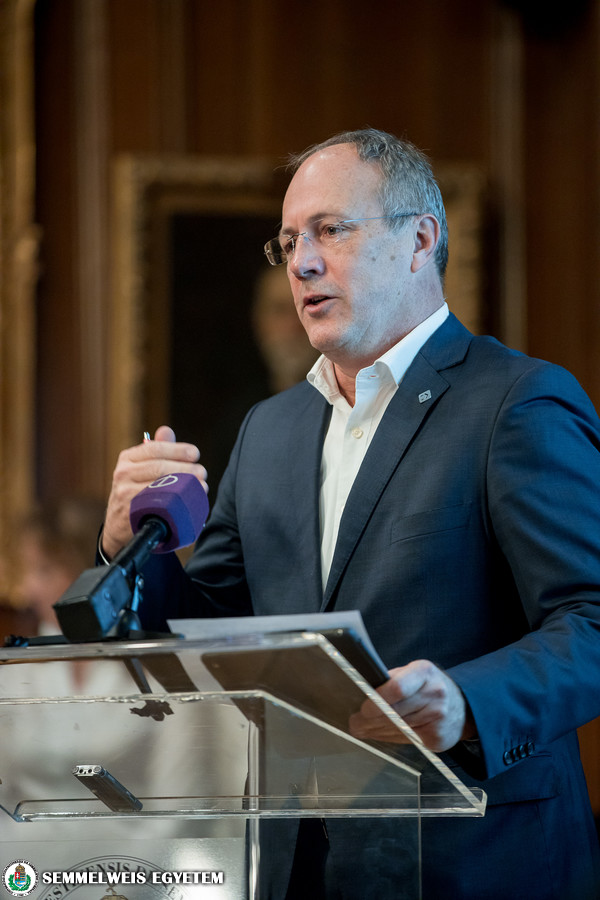 Dr. Miklós Szócska, dean of the Faculty of Health and Public Administration (EKK), the event’s organizer, stressed that the goal of the program is to bring closer together those who are dealing with AI, and to place the university’s related activity within a strategic framework. “Use data, as you can save lives with it” – he said of his motto, pointing out the huge amount of health care-related data that is needed for developing AI. The ministry program is an excellent opportunity that allows the university to strengthen its health industry-related R&D activity focusing on developing AI, he noted.
Dr. Miklós Szócska, dean of the Faculty of Health and Public Administration (EKK), the event’s organizer, stressed that the goal of the program is to bring closer together those who are dealing with AI, and to place the university’s related activity within a strategic framework. “Use data, as you can save lives with it” – he said of his motto, pointing out the huge amount of health care-related data that is needed for developing AI. The ministry program is an excellent opportunity that allows the university to strengthen its health industry-related R&D activity focusing on developing AI, he noted.
Dr. István Csabai, professor at the Eötvös Loránd University’s (ELTE) Institute of Physics, a long-standing partner of the EKK, discussed the opportunities provided by AI, including its use in health care. He said the breakthrough in computer sciences came in the mid-2010s that allows the present AI-related developments to take place. Machines have to be “taught” just like children, he noted, showing it examples and assigning tags to them, but a magnitude of tens of thousands of examples is required. Learning is then carried out by a linear algebraic system that can then separate a cancer image from a healthy one, he explained. Dr. Csabai said AI can be used well in health sector innovation, but multidisciplinary cooperation is needed.
Gergely Szertics, professional director of the Artificial Intelligence Coalition (MIK) talked about Hungary’s health care AI strategy, noting that Semmelweis University is also part of this 225-member coalition, which was initiated by innovation and technology minister László Palkovics.
Two presentations gave an overview of the possible uses of AI in medicine. Dr. Benedek Gyöngyösi, a resident at the 2nd Department of Pathology presented its use in colorectal cancer screening, describing the unit’s current work in developing a software to help the work of pathologists, which is being conducted in cooperation with ELTE. Bálint Pataki, a PhD student at ELTE, discussed the use of convolutional neural networks in medical imaging diagnostics, mentioning their breast cancer-mammography project.
Dr. Zoltán Ónodi-Szűcs, vice-chancellor of the University of Debrecen talked about supporting lung screenings with the use of AI and the university’s work in the area over the past two years. Rounding out the discussion was Dr. Györgyi Lengyel, commissioner at the ITM in charge of the health economy, who mentioned that the AI action plan starting in 2020 treats health care as a key area. She noted that AI should not replace, but only help the work of human doctors, and pointing out that the handling of health data requires great care.
Pálma Dobozi
Translation: Tamás Deme
Photo: Attila Kovács – Semmelweis University
